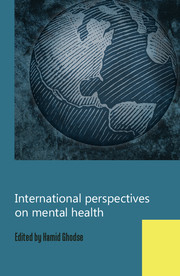Nigeria
from Africa
Published online by Cambridge University Press: 02 January 2018
Summary
Nigeria is a huge country. It covers an area of 924 000 km2 on the west coast of Africa. It has a population of about 110 million, which means that every one in six Africans is a Nigerian. It is a country of diverse ethnicity, with over 200 spoken languages, even though three of those are spoken by about 60% of the population. Administratively, it is divided into 36 states and operates a federal system of government, with constitutional responsibilities allocated to the various tiers of government – central, state and local. There are two main religions, Islam (predominantly in the north) and Christianity (predominantly in the south). However, a large proportion of the people still practise traditional religions exclusively or in addition to either Islam or Christianity.
In spite of its abundant natural and human resources, Nigeria is still a poor country, and nowhere is that status indicated better than in its health indices. About 170 out of every 1000 children die before the age of 5 years and life expectancy is 46.8 years for men and 48.2 years for women (World Health Organization, 2000). It spends about 3% of its gross domestic product on health (World Health Organization, 2001) and in a rating of the overall health performance of all 191 member states of the World Health Organization in 2000, Nigeria was ranked 187 (World Health Organization, 2000).
A brief history
Available records suggest that the first asylum had been established in the southern city of Calabar by 1904. It was followed by the Yaba asylum, also in the south, which was opened in 1907 with 48 patients. Before that, some patients with mental illness were sent to Sierra Leone. However, the seeking of orthodox care for mental illness must have been very uncommon at the time, for a British army physician claimed in 1845 that insanity was rare in Nigeria (Anumonye, 1976). The asylums relied on the services of general medical officers, since there were no psychiatrists and those there were provided essentially custodial management.
When the Aro Mental Hospital was opened in Abeokuta in 1954, it was to respond to the need for improved mental healthcare identified by the British colonial government.
- Type
- Chapter
- Information
- International Perspectives on Mental Health , pp. 41 - 45Publisher: Royal College of PsychiatristsPrint publication year: 2011



